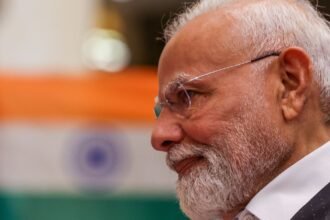Citing the use of online payment services, virtual private networks (VPNs) and e-commerce platforms in the terror attacks in Pulwama in February 2019 and Gorakhnath Temple in April 2022, the Financial Action Task Force (FATF), in a report released Tuesday, said digital platforms such as social media, messaging applications and crowdfunding sites are increasingly being abused for terror financing.
The FATF report, without naming any country, noted it had received reports from its delegations about the use of state sponsorship for terrorist financing (TF), either as fundraising technique or as part of the financial management strategy of certain organisations engaging in terrorist acts. A variety of publicly available sources of information and delegations’ inputs to the report indicate that “certain terrorist organisations have been and continue to receive financial and other forms of support from several national governments,” it said.
“Several forms of support have been reported, including direct financial support, logistical and material support, or the provision of training. Delegations reported state sponsorship for TF purposes coupled with sanctions circumvention techniques through trade and smuggling mechanisms where the national government potentially plays a supportive role,” the report titled ‘Comprehensive Update on Terrorist Financing Risks’ said.
Schemes involving several commodities have also been reported, for instance, oil shipped to an intermediary country to be sold in gold, with gold later converted to cash in another jurisdiction, the report said.
The FATF flagged the decentralisation of terror operations, with regional financial hubs and self-financed cells, adapting to local contexts, and involving a range of funding sources – from criminal proceeds to investments in business activities.
In an earlier statement released in June this year, the FATF had condemned the “brutal terrorist attack” in Pahalgam on April 22, noting that such attacks cannot occur “without money and the means to move funds between terrorist supporters”. The FATF had then stated it planned to come out with an analysis of terrorist financing, compiling cases by its global network.
Listing case studies about the misuse of e-commerce platforms for TF purposes, the FATF report noted that in the terror attack by a suicide bomber in Pulwama in February 2019 that killed 40 CRPF personnel, a key component of the improvised explosive device used in the attack – aluminum powder – was procured through the e-commerce platform and online marketplace (EPOM) Amazon.
Story continues below this ad
“India’s authorities concluded that the attack was orchestrated by Jaish-i-Mohammed. Investigations revealed the cross-border movement of a large quantity of explosives into India. Notably, a key component of the improvised explosive device used in the attack – aluminum powder – was procured through the EPOM Amazon. This material was used to enhance the impact of the blast,” it said.
The FATF also detailed the use of online payment service and VPNs to fund lone-actor terrorist acts in the instance of the attack on security personnel at Gorakhnath Temple in April 2022. An individual influenced by ISIL’s ideology attacked security personnel, and the financial investigation revealed that the individual had transferred Rs 6,69,841 ($7,685) via PayPal to foreign countries in support of ISIL, using international third-party transactions and using VPN services to obscure the IP address. He had also received Rs 10,323.35 ($188) from a foreign source, the report said.
The forensic report revealed that the accused had been using a VPN for calling, chatting and downloading to evade detection. “Further financial scrutiny uncovered that the accused had made a payment to a VPN provider through his bank account to secure these services. A comprehensive analysis of the accused’s PayPal transactions, obtained via email, indicated that approximately 44 international third-party transactions totaling Rs 6,69,841 (approximately $7,736) had been made to foreign accounts. Additionally, the accused received funds from a foreign account through PayPal,” the report said.
The investigation also uncovered that the accused had sent money to multiple individuals identified as ISIL followers in foreign jurisdictions to support terrorist activities. Due to the suspicious nature of these transactions and the potential for TF, PayPal suspended the accused’s account, thereby preventing further illicit fund transfers, it said.
Story continues below this ad
The FATF also flagged decentralisation as one of the most reported trends for worldwide terrorism activities in recent years. For instance, Al-Qaeda over the past years used a centralised consultation council, known as Majlis al-Shura, to manage key strategic decisions, including financial management. Now it has shifted to a decentralised model, with regional bodies such as Al-Qaeda in the Indian subcontinent (AQIS) conducting operations and generating funds locally.
It also listed instances of trade-based terrorist financing. The FATF said storage of gold or jewellery has been reported on rarer occasions, with the Indian authorities flagging ISIL or Al-Qaida inspired individuals using it as a storing method for small funds, either keeping assets themselves or having relatives hiding it.
The Pak fingerprint
Indian agencies established the role of Pakistan-based terror outfit Jaish-e-Mohammed in the Pulwama attack which claimed the lives of 40 CRPF personnel. In May this year, the Indian armed forces said an estimated 100 terrorists were killed on the first day of Operation Sindoor when India struck nine terror hubs in Pakistan-occupied Kashmir and Pakistan and these included high-value targets including individuals involved in the hijacking of Indian Airlines flight IC-814 and the Pulwama attack.







